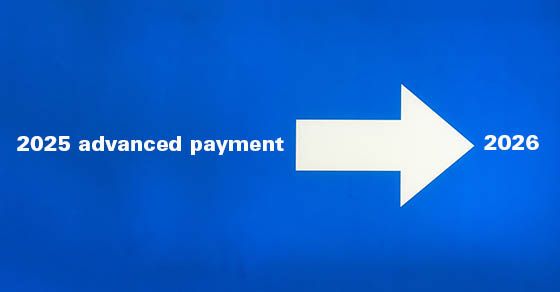Review your business expenses before year end
Now is a good time to review your business’s expenses for deductibility. Accelerating deductible expenses into this year generally will reduce 2025 taxes and might even provide permanent tax savings. Also consider the impact of the One Big Beautiful Bill Act (OBBBA). It makes permanent or revises some Tax Cuts and Jobs Act (TCJA) provisions that reduced or eliminated certain deductions.
“Ordinary and necessary” business expenses
There’s no master list of deductible business expenses in the Internal Revenue Code (IRC). Although some deductions are expressly authorized or excluded, most are governed by the general rule of IRC Section 162, which permits businesses to deduct their “ordinary and necessary” expenses.
An ordinary expense is one that is common and accepted in your industry. A necessary expense is one that is helpful and appropriate for your business. (It doesn’t have to be indispensable.) Even if an expense is ordinary and necessary, it may not be deductible if the IRS considers it lavish or extravagant.
OBBBA and TCJA changes
Here are some types of business expenses whose deductibility is affected by OBBBA or TCJA provisions:
Entertainment. The TCJA eliminated most deductions for entertainment expenses beginning in 2018. However, entertainment expenses for employee parties are still deductible if certain requirements are met. For example, the entire staff must be invited — not just management. The OBBBA didn’t change these rules.
Meals. Both the TCJA and the OBBBA retained the pre-2018 50% deduction for business meals. What about business meals provided in connection with nondeductible entertainment? They’re still 50% deductible, as long as they’re purchased separately from the entertainment or their cost is separately stated on invoices or receipts.
Through 2025, the TCJA also expanded the 50% deduction rule to meals provided via an on-premises cafeteria or otherwise on the employer’s premises for the convenience of the employer. (Previously, such meals were 100% deductible.) The deduction was scheduled to be eliminated after 2025. The OBBBA generally retains this deduction’s 2026 elimination, with some limited exceptions that will qualify for a 100% deduction. But meal expenses generally can be 100% deducted if the meals are sold to employees.
Transportation. Transportation expenses for business travel are still 100% deductible, provided they meet the applicable rules. But the TCJA permanently eliminated most deductions for qualified transportation fringe benefits, such as parking, vanpooling and transit passes. However, those benefits are still tax-free to recipient employees, up to applicable limits. The OBBBA doesn’t change these rules.
Before the TCJA, employees could also exclude from taxable income qualified bicycle commuting reimbursements, and this break was scheduled to return in 2026. However, the OBBBA permanently eliminates it.
Employee business expenses
The TCJA suspended through 2025 employee deductions for unreimbursed employee business expenses — previously treated as miscellaneous itemized deductions. The OBBBA has permanently eliminated this deduction.
Businesses that don’t already have an employee reimbursement plan for these expenses may want to consider implementing one for 2026. As long as the plan meets IRS requirements, reimbursements are deductible by the business and tax-free to employees.
Planning for 2025 and 2026
Understanding exactly what’s deductible and what’s not isn’t easy. We can review your current expenses and help determine whether accelerating expenses into 2025 makes sense for your business. Contact us to discuss year-end tax planning and to start strategizing for 2026.
© 2025










